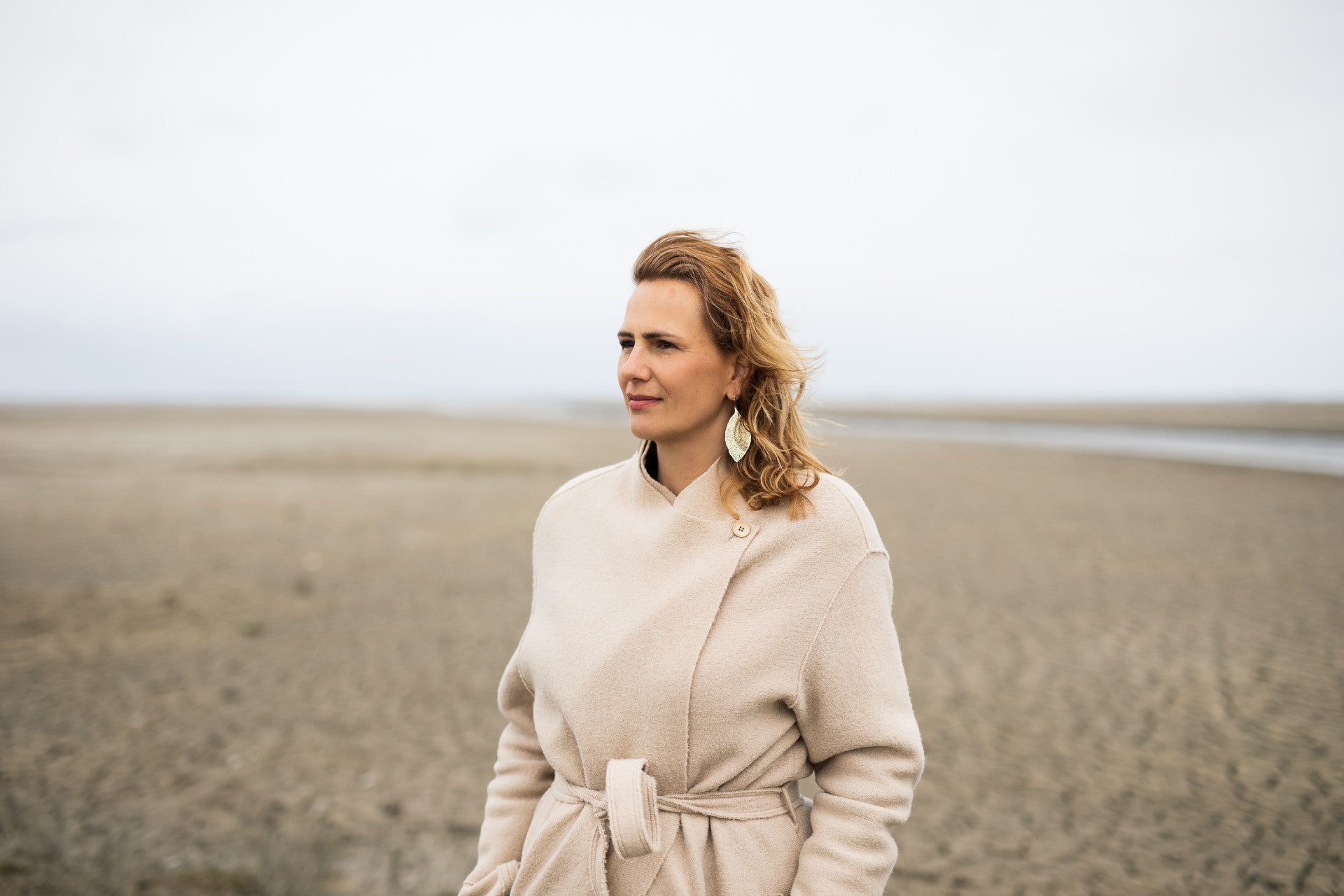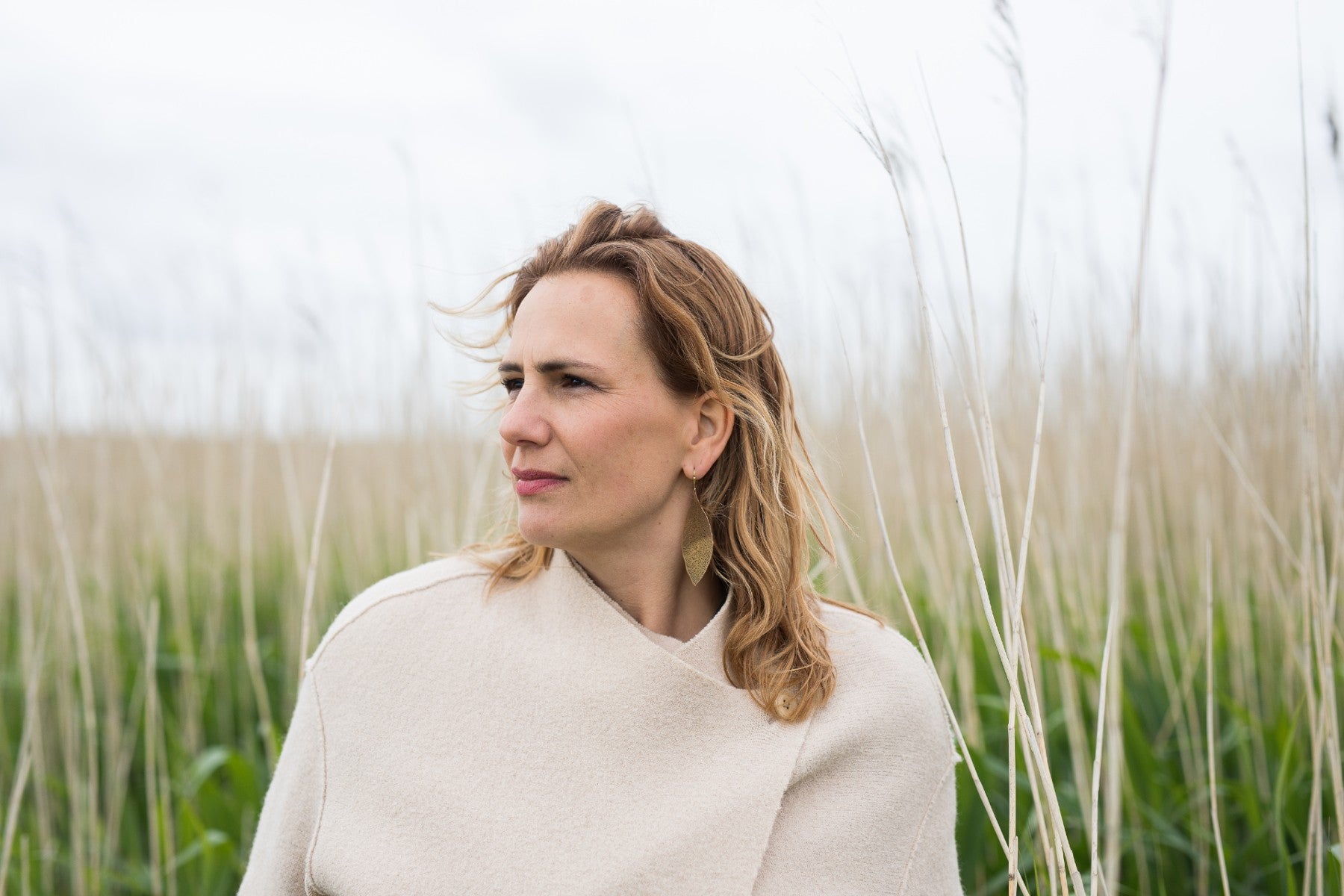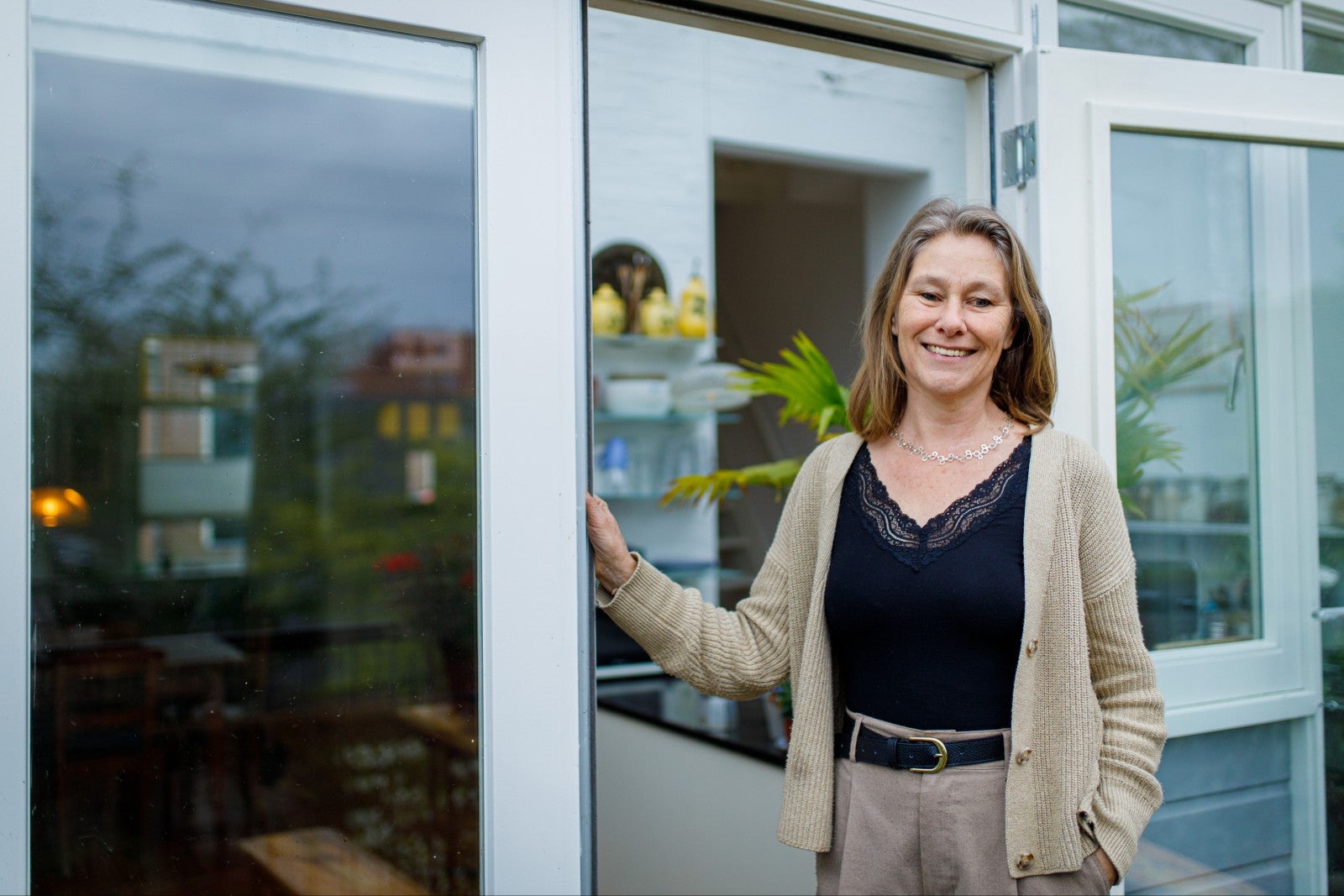Journalist Nynke Sietsma (43) lost her son Berend to cancer at the age of four and wrote the poignant book B about it. After his passing, she resumed her VU education to become a spiritual caregiver. „I want to find a way to be of service to other parents."
When you apologized for a delayed response via email, you wrote, 'Grieving takes time.' Did you anticipate it in that way beforehand?
„I was never a good planner, but it seems like since Berend passed away, I can't think further ahead than a week. Grieving is intensive, still, it's truly laborious. In the beginning, I was completely overwhelmed by the sorrow. But new situations still arise where I have to deal with something."
„For instance, we haven't done anything to the house since Berend's death. But a film crew was coming, so I wanted to redecorate the living room this week. There were still marks on the walls. Then, something as simple as painting becomes a form of mourning work again, because those marks were also from him. Should I leave them or not? There are constantly new situations that don't seem meaningful at first glance but still deserve care and attention because they relate to Berend."
It's been three years since Berend passed away. Do you feel like you need to keep him alive in conversations?
„There seems to be some sort of time limit on grief. A psychologist once told me, 'As hard as it is, we are made to forget.' You often hear that losing a child is the worst thing, but in practice, it sometimes feels like nothing happened, and there's less and less talk about him. And yes, life goes on, so I understand it very well. But it sometimes feels contradictory."
„I can empathize very well with others. That might be one of the reasons I'm pursuing spiritual care now."
„I truly believe it's never wrong to talk about a deceased child. Talking about living children is always okay, and it's no different with a deceased child, as strange as that sounds. However, our memories of Berend don't progress, so it can be difficult for others. Because, well, what do you talk about? But I am still Berend's mother. Of a son. I understand it too. It is difficult. That's the dilemma. I can empathize very well with others. That might be one of the reasons I'm pursuing spiritual care now."
Are there things that outsiders shouldn't do?
„What I find difficult is seeing people struggling to say something, but then they don't dare to take the step, even after all these years. Then the unsaid always remains between us. I've thought a lot about this as a future spiritual caregiver."
„If you need to move forward with someone - and I'm thinking, for example, of people you keep encountering, maybe in your neighborhood or in your surroundings - and that person is grieving or has experienced something else significant, then it's up to you to start the conversation, to acknowledge that it exists. If you want a relationship with that person, then you'll have to take the first step yourself, because otherwise, the grieving person has to do it. Sometimes I want to put someone out of their misery myself, but I don't always have the resilience for it."
In the past, people wore mourning bands, a black band around the upper arm, to show that someone was in mourning.
„Back then, death was indeed much more present in society. In today's time, it's quite peculiar in the Netherlands. Because on the one hand - I learned this after Berend's passing - we have a tolerant burial culture. There's quite a lot allowed in terms of the deceased. For example, after Berend's passing, we were allowed to take him home in our arms from the hospital."
„On the other hand, death doesn't seem to belong at all in our society. We mainly want everything to go well. It's not about displaying your grief, or that everyone should be occupied with their sorrows and traumas all day, but it would be so nice if there was a balance, if we acknowledged that death is just part of life, and that we all carry sadness with us. Berend's life was very short, and we are still here. That's sometimes unbearable. And yet I can sometimes, well, accept it, as part of life."
„I don't read self-help books myself. But I think one of the most important life lessons is to accept that your life is transient. And everything you do in it, of course, you can optimize, but we shouldn't postpone that transience."

You studied Religious Studies and decided to return to VU after fifteen years to complete your education. Does that choice have to do with Berend's death?
„Definitely, but even before that, not completing my thesis felt like a thorn in my side. Furthermore, during my student years, I was already interested in the master's program in spiritual care. Even then, I could see myself working in a hospital, like a modern minister, but I thought I was too young. I believed that for such a profession, I needed a backpack full of life experience. So, I started working as a religion journalist."
„A week before Berend's passing, I had a dream that made me very clear and intuitive that Berend wouldn't survive."
„Berend does appear in my bachelor's thesis. It's about maternal intuition in mothers caring for a seriously ill child. For example, some mothers have predictive dreams or visions about their child. The reason for this theme is personal; a week before Berend's passing, I had a dream that made me very clear and intuitive that Berend wouldn't survive."
„That knowledge came from deep within. But I couldn't rationalize it. So what is that deep, inner intuition? For some people, it's religious or spiritual, and those are topics that fit well with spiritual care, and perhaps less or not at all with doctors. I felt the need to talk about spirituality in the hospital where we were with Berend. So then I thought: I need to find a way to, in whatever capacity, be of service to parents."
„Now, I've also decided that for my master's thesis, I want to delve deeper into the theme of grief and men. I notice differences in how my husband and I deal with grief, and I also discuss it with other grieving individuals. Little research seems to have been done on the topic, or it might be due to my research skills, but it seems like men are more prone to complicated grief if they don't dare or can't express themselves. I find it interesting to see if there could be something that would help them more."
Does studying help with the grieving process?
„Sometimes I find it more difficult than helpful, but I realized along the way: conducting science is not therapy. But of course, I recognize certain theories from my own experience, and sometimes that's comforting. Like magical thinking, which persisted for a long time. We were waiting for Berend, even though we knew he wasn't coming back. That's why his high chair couldn't be removed from the table. Because what if he came back?"
„When it comes to Berend, I suddenly dare much more. Even writing a book."
„What helps me are rituals and attention. When I tidy up his boots from the closet, I pause. Or when we celebrate his birthday by silently walking with the family to the spot by the dune lake where we celebrate his life and start with a ritual before cutting the cake. I would never have dared to take on such a leadership role before. But when it comes to Berend, I suddenly dare much more. Even writing a book."
In what ways was Berend similar to you?
„I saw a joy in his eyes that I can also have. He had immense joy in life, even when he was very ill. Then he would ask the nurse secretly for an ice cream rocket at half past eight in the morning, and when I came in, he would be sitting upright in bed with sparkling eyes. The necklace around my neck with the charm of a rocket still reminds me daily of the love Berend had for life."
"B," a memoir by Nynke Sietsma, is published by Nijgh en Van Ditmar.








